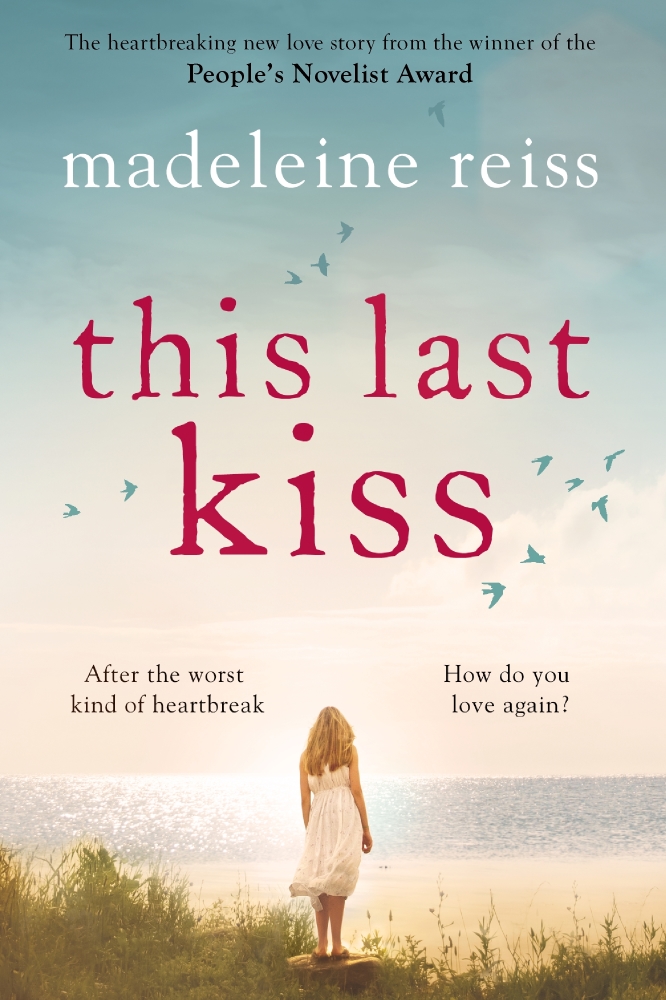There will always be people who look askance at romantic novels, judging them not to be 'serious literature' but rather some kind of mindless fodder for those readers who are unable to appreciate anything more taxing. Romantic novels are criticized for being predictable, for lacking depth and for showing unrealistic relationships. What these views fail to take into account is that the genre is extraordinarily wide and encompasses all kinds of stories. Romantic novels range from bodice rippers to Jane Eyre. They are written by people as gifted and diverse as Jojo Moyes, Boris Pasternack, Jilly Cooper and Jane Austen. As with anything, there are good and bad examples of the genre, but at their best, romantic novels are about the stuff of life. Which is why so many women read them (men should get smart and dip in - they might learn enough to get a date).

Madeleine Reiss
These are the eight reasons we love reading romantic novels:
They offer escapism.
Escapism is one of those things that is considered self-indulgent, like eating too much chocolate or binging on a box set, but when life is difficult or dreary or you simply want to delay having to put the bin out, there is an intense relief in being able to immerse yourself in a cracking story, particularly if it is set in an unfamiliar or exotic location. A romance can transport you to another place and another time. No one is pretending that reading romantic novels will solve your problems, but they can certainly make you feel a whole lot better.
We can fall in love with the hero (or heroine).
There is a school of thought that says that romantic novels are popular because they depict men as emotionally available in a way that so many of them are not in real life. A familiar trope of the genre is the gruff, distant hero (Jane's Rochester or Lou's Will) who is eventually moved to see the error of his ways and to understand that things will be better all round if he opens up a bit. We relish reading about deep emotional and physical intimacy. Which brings me neatly to my third point….
The sex.
It has long been known that men are most often turned on by images whereas women like context (although there is evidence that this is changing as women gain more power in the world). We enjoy the sensuous descriptions of what people like doing to each other, but we like the foreplay too and romantic novels are big on foreplay. So, we may relish our hero's 'throbbing manhood' but it is all the better for having a few scenes leading up to its revelation in which he simply gazes at the heroine's mouth or tenderly touches her on the neck (or is grumpy and emotionally unavailable for the required length of time) Sex in books offers a safe place to explore fantasies.
They cover issues women can relate to.
The trajectory of a love story might be predictable but it is the journey that readers appreciate so much. It gives them the opportunity to work through some of the issues that they have themselves confronted. Who hasn't had their heart broken? Who doesn't long to believe that second chances are possible? We learn a great deal from the depictions of relationships in romantic novels about how to overcome what life chucks at us and emerge on the other side, if not grinning from ear to ear, at least a lot stronger and wiser.
We like to weep.
Not all romances are sad, but a good few of them plough the depths of loss and disillusionment. They depict the ups and downs of life and the obstacles that people have chucked in their way. Readers often find romantic novels achingly sad because they empathize with the characters' struggles and sorrows. Such books resonate and evoke memories and sensations. Having a good cry is a bit like sorting out the pan cupboard- it's not exactly enjoyable, but you feel much calmer afterwards.
Good writing
It is only someone who has not explored the genre who will make assumptions about the quality of the writing. Too often dismissed as 'chiclit' or 'women's fiction' (Eh?), romantic novels are often funny and clever. They make the very most of location and atmosphere, they depict real people with real hopes and dreams and fears. A well-written sentence is as effective in a romance as it is in any other kind of novel.
They celebrate love in all its many forms.
This is fairly self-explanatory but the good romantic novel shows us the best kind of love - one that allows people to bring out the potential in each other- the kind that enables us to grow.
They have happy endings.
Not many romances stray beyond the climax of fulfilled love to the far greyer area beyond… what happens when the sunsets subside and real life begins? (Although there are notable exceptions to this and certainly marriage break-down and difficulty is a topic often covered in romantic novels) While this may be a source of criticism, it is also a source of pleasure. Romantic novels offer a comforting optimism. They make us believe that while love is always a risk, we all deserve to live happily ever after.


